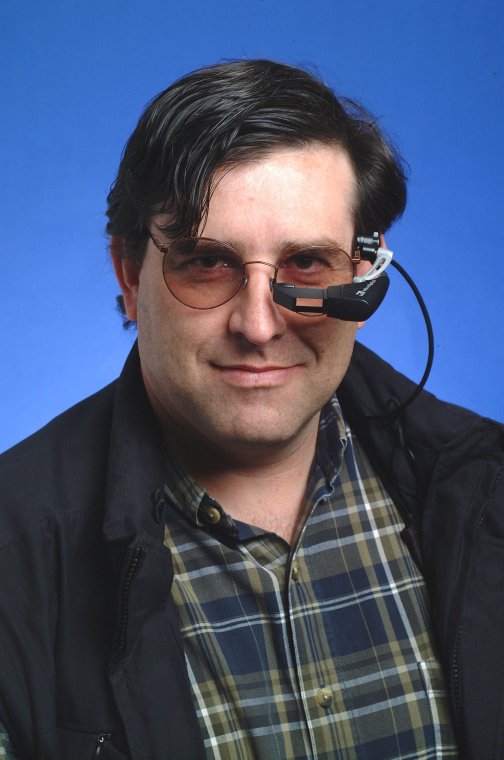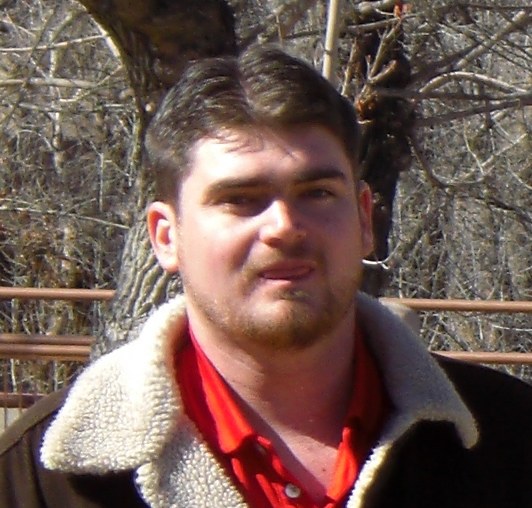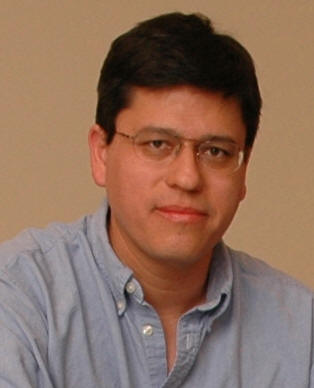
Andrew H. Fagg
University of Oklahoma
Dr. Andrew H. Fagg holds a BS degree in Applied Mathematics/Computer Science from Carnegie Mellon University and MS and PhD degrees in Computer Science from the University of Southern California. His research areas include robotics, wearable/ubiquitous computing, machine learning, interactive art and computational neuroscience. Specifically, he studies machines as models of how biological systems represent and learn motor and cognitive skills; primates as inspiration for new robot control and learning techniques; and the interaction of humans with machines. Central to all of these problems are the issues of constructing rich representations of the state of the agent, the local environment, the task, and the skills; and of using various forms of available training information to refine these representations.
Dr. Fagg directed the REU site on Embedded Machine Learning Systems at OU (2005-2007), which served a total of 24 students. While at the University of Massachusetts, Dr. Fagg was responsible for the REU program that was associated with the Research Infrastructure project on Sensorimotor Development in Humans and Machines. Over the course of four years, this REU project included a total of twelve undergraduate students into the lab's research activities.

Amy McGovern
University of Oklahoma
Dr. Amy McGovern's education includes: Ph.D. in Computer Science in 2002 from the University of Massachusetts Amherst, M.S. in Computer Science in 1998 from the University of Massachusetts Amherst and B.S. (Honors) in Math and Computer Science (minor: Spanish) from Carnegie Mellon University in 1996. From 2002 to 2004, Dr. McGovern was a Senior Postdoctoral Research Associate in the Knowledge Discovery Laboratory at the University of Massachusetts Amherst where her research focused on methods to discover predictive structures using a relational representation. While there, the team she led captured first place for the open task of the annual Knowledge Discovery and Data Mining competition (KDD Cup) in 2003. Dr. McGovern's research focuses on creating intelligent agents by developing and using methods from artificial intelligence, machine learning, knowledge discovery, data mining, and robotics that enable autonomous discovery of useful structure, patterns, and abstractions from an agent's interaction with its environment. She has a particular interest in applications that will enable humans to safely live long-term in space.
Dr. McGovern is also planning to participate in the Computing Research Association Distributed Mentor Program (CRA-W DMP). This program pairs female faculty mentors with female undergraduates who are considering graduate school and helps to introduce the undergraduates to the research process.

Jedidiah R. Crandall
University of New Mexico
Dr. Jedidiah R. Crandall is an assistant professor in the UNM computer science department. His research interests are Internet censorship, analysis and detection of malicious code such as viruses and worms, and information flow security. He received his Ph.D. from the University of California at Davis in 2007.

Dean F. Hougen
University of Oklahoma
Dr. Dean F. Hougen received his BS in Computer Science from Iowa State University in 1988, with minors in Philosophy and Mathematics, and his Ph.D. in Computer Science from the University of Minnesota in 1998, with a graduate minor in Cognitive Science. With over a decade of experience in all areas of artificial intelligence, his primary research involves robotics and machine learning, focusing on distributed heterogeneous robotic systems and situated learning in real robotic systems, including reinforcement learning, connectionist learning, and evolutionary computation. He has also worked in the areas of expert systems, decision support systems, geographic information systems, and user interfaces, developing several fielded systems in these areas. He founded the Robotic Intelligence and Learning Laboratory at OU, and is also a founding member of the Oklahoma Center for the Study of Adaptive Systems at the University of Oklahoma.
Dr. Hougen has been actively involved in research with undergraduates, starting during his own graduate education. These have included an NSF-sponsored REU at the University of Oklahoma, the Multicultural Undergraduate Research Program at the University of Minnesota, the Undergraduate Research Opportunities Program (UROP) at both OU and UMN, numerous Senior Reading & Research and Honors Research courses, as well as sponsored research and informal collaborations. Dr. Hougen co-directed the REU site on Embedded Machine Learning Systems at OU (2005-2007).

Rafael Fierro
University of New Mexico

Terran Lane
University of New Mexico

Theresa Cullen
University of Oklahoma